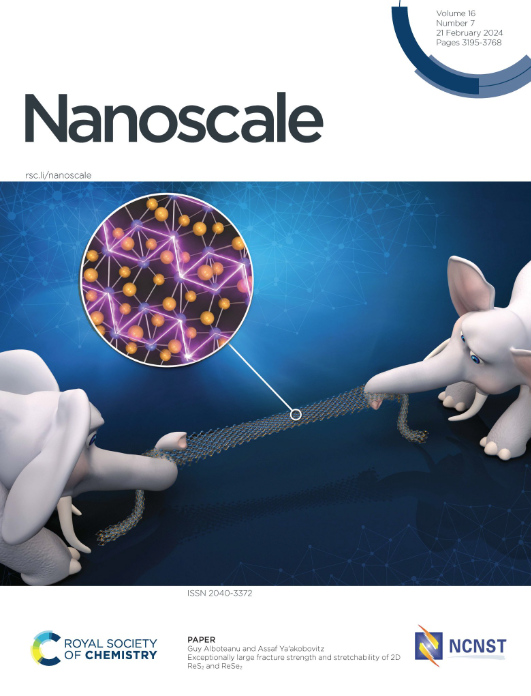Overcoming the Tumor Microenvironment in Pancreatic Cancer via Barrier-Specific Nanoparticle Drug Delivery
IF 5.1
3区 材料科学
Q1 CHEMISTRY, MULTIDISCIPLINARY
引用次数: 0
Abstract
Pancreatic cancer is one of the most lethal malignancies, largely due to the formidable pathophysiological barriers presented by its tumor microenvironment (TME). These include metabolic stress, such as acidosis and elevated reactive oxygen species; dense stromal architecture with poor perfusion; and profound immune suppression, all of which severely limit drug delivery and therapeutic efficacy. Recent advances in nanomedicine have enabled the development of TME-responsive drug delivery systems (DDSs) capable of targeting these distinct barriers. This review outlines three major TME-derived barriers in pancreatic cancer and presents emerging nanoparticle-based strategies to overcome them. Specifically, we discuss the use of pH- and ROS-responsive nanoparticles to address metabolic stress, penetration-enhancing nanocarriers to navigate physical stromal obstacles, and immune-modulatory nanoparticle systems to restore antitumor immunity. Finally, we highlight the future potential of integrating artificial intelligence with nanomedicine to design personalized, multifunctional DDSs tailored to the heterogeneous TME. These advances collectively suggest that TME-responsive nanodelivery offers significant promise for transforming the treatment landscape of pancreatic cancer.通过屏障特异性纳米颗粒给药克服胰腺癌肿瘤微环境
胰腺癌是最致命的恶性肿瘤之一,主要是由于其肿瘤微环境(TME)存在强大的病理生理障碍。这些包括代谢应激,如酸中毒和活性氧含量升高;间质结构致密,灌注差;以及严重的免疫抑制,这些都严重限制了药物的输送和治疗效果。纳米医学的最新进展使tme反应性药物递送系统(dds)的发展能够靶向这些不同的障碍。这篇综述概述了胰腺癌中三种主要的tme来源的屏障,并提出了新兴的基于纳米颗粒的策略来克服它们。具体来说,我们讨论了pH和ros响应纳米颗粒的使用,以解决代谢应激,穿透增强纳米载体,以导航物理间质障碍,免疫调节纳米颗粒系统,以恢复抗肿瘤免疫。最后,我们强调了将人工智能与纳米医学相结合,为异构TME量身定制个性化多功能dds的未来潜力。这些进展共同表明,tme反应性纳米递送为改变胰腺癌的治疗前景提供了重大希望。
本文章由计算机程序翻译,如有差异,请以英文原文为准。
求助全文
约1分钟内获得全文
求助全文
来源期刊

Nanoscale
CHEMISTRY, MULTIDISCIPLINARY-NANOSCIENCE & NANOTECHNOLOGY
CiteScore
12.10
自引率
3.00%
发文量
1628
审稿时长
1.6 months
期刊介绍:
Nanoscale is a high-impact international journal, publishing high-quality research across nanoscience and nanotechnology. Nanoscale publishes a full mix of research articles on experimental and theoretical work, including reviews, communications, and full papers.Highly interdisciplinary, this journal appeals to scientists, researchers and professionals interested in nanoscience and nanotechnology, quantum materials and quantum technology, including the areas of physics, chemistry, biology, medicine, materials, energy/environment, information technology, detection science, healthcare and drug discovery, and electronics.
 求助内容:
求助内容: 应助结果提醒方式:
应助结果提醒方式:


